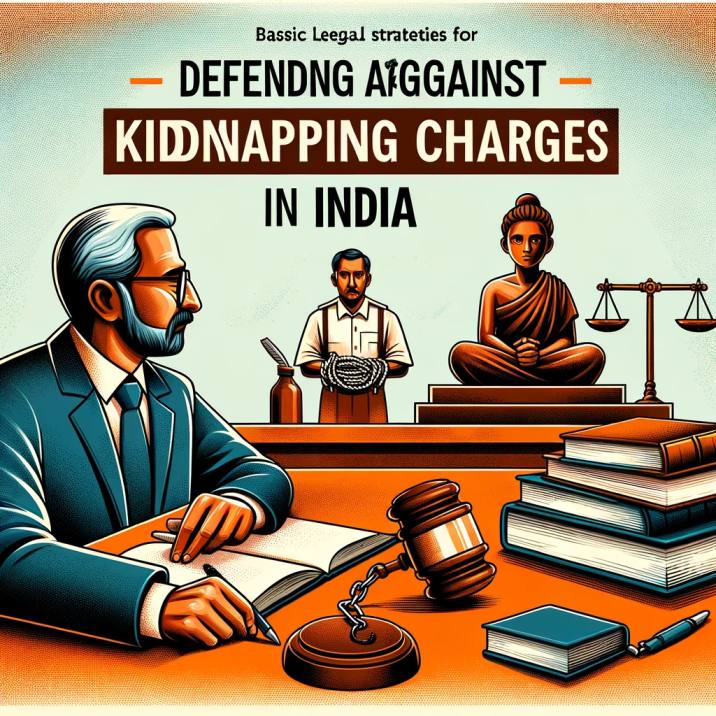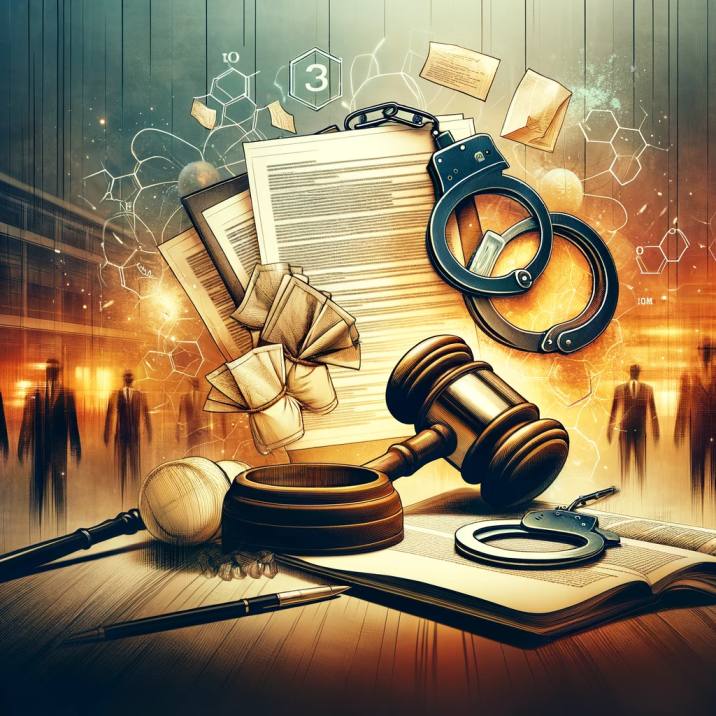In this article we have explained Understanding Drug Offenses in India: A Comprehensive Guide for Clients
In the intricate web of legal systems, understanding the nuances of drug offenses in India can be a labyrinthine task for clients. This comprehensive guide aims to unravel these complexities, offering an insightful and authoritative exploration of drug-related legalities in India.
Understanding Drug Offenses in India: A Comprehensive Guide for Clients
India’s stance on drug control and regulation has evolved significantly over the years, reflecting global trends and internal policy shifts. The current legal framework is a complex amalgamation of statutes, judicial interpretations, and administrative guidelines, designed to combat the multifaceted challenges posed by drug offenses.
History and Evolution
The journey of India’s drug laws began in the early 20th century, with legislation primarily focused on opium control. Post-independence, the legislative landscape expanded, incorporating broader drug categories and aligning with international drug control treaties.
Current Legal Framework
Today, India’s drug law enforcement hinges predominantly on the Narcotic Drugs and Psychotropic Substances Act (NDPS Act), 1985. This Act, alongside other relevant legal provisions, forms the bedrock of the country’s approach to drug offenses.
Types of Drug Offenses
Understanding the different types of drug offenses is crucial for clients navigating legal challenges. These offenses range from possession and use to trafficking and manufacturing, each carrying its own set of legal implications.
Possession
Possession of drugs in India is a criminal offense, with the severity of punishment varying based on the quantity possessed – small quantity, commercial quantity, or intermediate quantity.
Trafficking
Drug trafficking, involving the illegal trade and distribution of narcotics, is one of the most serious offenses under Indian law, attracting stringent penalties.
Manufacturing
The unauthorized production and manufacturing of drugs are also heavily penalized, reflecting the government’s intent to curb the drug menace from its roots.
The Narcotic Drugs and Psychotropic Substances Act (NDPS Act)
The NDPS Act is the cornerstone of India’s legal framework against drug offenses. It outlines the parameters for what constitutes an offense and prescribes penalties based on the gravity of the crime.
Key Provisions
The Act categorizes drugs, defines offenses, and stipulates punishment ranges. It also addresses aspects like forfeiture of property and treatment for addiction.
Penalties and Punishments
Punishments under the NDPS Act vary, ranging from monetary fines to rigorous imprisonment. The nature of the offense, the quantity of drugs involved, and the offender’s criminal history influence the severity of penalties.
Legal Process for Drug Offenses
The legal process for drug offenses in India involves several stages, from investigation to trial, each governed by specific procedural laws.
Investigation Procedures
Upon suspicion or report of a drug offense, law enforcement agencies initiate an investigation, which includes search, seizure, and gathering of evidence.
Arrest and Bail
The procedure for arrest and the possibility of bail depend on factors like the nature of the offense and the accused’s background. Notably, bail in drug cases, especially for commercial quantities, is challenging to secure.
Role of Enforcement Agencies
Enforcement agencies at both the central and state levels play pivotal roles in addressing drug offenses in
FAQ (FREQUENTLY ASKED QUESTIONS)
- What are the primary laws governing drug offenses in India?
The primary law is the Narcotic Drugs and Psychotropic Substances Act (NDPS Act), 1985, which outlines the legal framework for controlling and penalizing drug offenses in India. - What constitutes a drug offense under Indian law?
Drug offenses include the cultivation, production, possession, sale, purchase, transport, warehousing, use, consumption, import, export, or any other transaction involving any narcotic drug or psychotropic substance. - Are the penalties for drug offenses the same across all substances?
No, penalties vary depending on the type and quantity of the substance involved. The NDPS Act categorizes drugs into different schedules with varying penalties. - What is the difference between ‘small quantity’ and ‘commercial quantity’ in drug offenses?
Small quantity refers to a lesser amount of drugs, which attracts lesser punishment, while commercial quantity is a larger amount that incurs more severe penalties. - Can a person be imprisoned for drug possession in India?
Yes, possession of illegal drugs can lead to imprisonment, with the term depending on the quantity and type of drug. - What rights do I have if I’m arrested for a drug offense in India?
You have the right to legal counsel, the right to remain silent, and the right to be presented before a magistrate within 24 hours of arrest. - Is bail available for drug offenses in India?
Bail is available but depends on the severity of the offense. For serious offenses, especially involving commercial quantities, bail is hard to obtain. - What is the role of the Narcotics Control Bureau (NCB) in India?
The NCB is the apex agency under the Ministry of Home Affairs responsible for combating drug trafficking and abuse of illegal substances. - Can foreigners be prosecuted for drug offenses in India?
Yes, foreigners in India are subject to Indian laws, including those related to drug offenses. - Are there any rehabilitation provisions for drug offenders in India?
Yes, the NDPS Act provides for the treatment and rehabilitation of addicts. - Is medical marijuana legal in India?
Medical use of marijuana is strictly regulated, and its recreational use remains illegal. - What happens if someone is caught with drugs at an Indian airport?
They will be arrested and charged under the NDPS Act, and the case will be handed over to the relevant authorities for legal action. - Can I be charged for drug consumption in India?
Yes, consumption of certain narcotic drugs and psychotropic substances is a punishable offense under the NDPS Act. - What is the punishment for drug trafficking in India?
Drug trafficking is a serious offense and can lead to long-term imprisonment, even life imprisonment or the death penalty in extreme cases. - Is it illegal to grow cannabis plants in India?
Yes, cultivation of cannabis plants for producing drugs is illegal, except for government-authorized purposes. - Can I be prosecuted for carrying prescription drugs in India?
Carrying prescription drugs without a valid prescription, especially if they fall under the category of psychotropic substances, can lead to prosecution. - Are there special courts for drug offenses in India?
Yes, there are special courts established under the NDPS Act for the speedy trial of offenses. - Can a drug offense lead to a travel ban out of India?
It depends on the legal proceedings and court orders. If the court has issued restrictions, travel can be banned. - What is considered as ‘use’ of drugs under the NDPS Act?
‘Use’ includes any act of consuming or applying a narcotic drug or psychotropic substance. - Is it legal to carry drugs for personal use in small quantities?
No, carrying drugs, even in small quantities, for personal use is illegal and punishable. - Can someone be prosecuted for being in a place where drugs are consumed?
Yes, if you are present in a place where illegal drugs are being consumed, you may face legal consequences. - What is the difference between possession and trafficking?
Possession refers to holding or having control over drugs, while trafficking involves the trade, transport, and distribution of drugs. - Are there any government programs for drug abuse prevention?
Yes, there are various programs initiated by the government for drug abuse prevention and awareness. - Can a person be prosecuted for online drug-related activities in India?
Yes, online drug-related activities are also punishable under the NDPS Act. - What constitutes evidence in drug-related cases in India?
Evidence can include the drugs themselves, paraphernalia, witness testimony, and other material evidence. - How does Indian law treat minors involved in drug offenses?
Minors are treated under the Juvenile Justice Act, with a focus on rehabilitation. - Can a drug offense in India impact my future employment?
Yes, a drug conviction can have severe implications on future employment prospects. - What are the defenses available in drug offense cases in India?
Defenses can include lack of knowledge, medicinal use, or being a victim of framing or planting of drugs. - Is there a statute of limitations for drug offenses in India?
No, there is no statute of limitations for drug offenses under the NDPS Act. - Can I appeal a drug offense conviction in India?
Yes, you can appeal to a higher court if convicted of a drug offense.
Sources:-
















